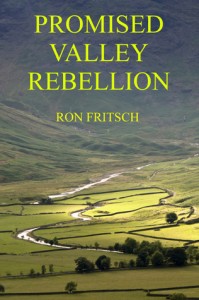
It’s a place without skyscrapers, but with a civilization that recognizes classes where people are born into groups known as valley people, hill people and river people. There are hierarchies, with gods over all, kings as rulers of people, tellers as interpreters for the gods, and farmers, traders and warriors. There are legends and histories, and the people generally live in peace. But there are memories, too, of the painful effects of war.
The plot surrounds the life of the son of the king of the valley people and two children of a noble warrior, now a valley farmer. Tensions are always present for the valley people as they kept posts with guards at the ready in case of invasion by the enemy hill people. River people move through as the river flows, bringing with them goods from other lands providing commerce and, it would seem, the only real contact with the lands that go beyond the valley.
There are laws and as surely as there are humans, there are those who are evil as there are those who are just. The primary difference between this land and more familiar civilizations of yesteryear is the acceptance of men who go with men and women who go with women in the same way as men who go with women and women who go with men. It’s presented tastefully as a way of life rather than a way of judgment. It’s a part of the story, but it is not the reason for the story.
The plot surrounds the resistance of the king, Tall Oak, and his friend, Green Field, who had been warriors as youths, allowing the prince, Morning Sun, and Green Field’s daughter, Rose Leaf, to marry. Rose Leaf’s brother, Blue Sky, who also loves the prince, would prove pivotal in discovering the mystery behind the reluctance to allow his sister to marry the prince. The truth could either lead the valley people to revolt or to war with the hill people. The details of the previous war between the two societies were well known, but all the facts were not. Surprises and plot twists keep the reader guessing to the outcome until the novel’s end.
It’s an enticing well-crafted story. With character names like Gentle Brook and Sturdy Limb, it takes a bit of getting used to, as opposed to if the characters were named Joe and Susie. But the names add to the otherworldliness of the story as a whole. It feels throughout like you have your feet in two worlds – one that’s familiar and one that seems in a whole other dimension. Fritsch offers a gently-woven plot with a writing style that leads the reader by the hand to an outcome that speaks to the similarities and differences of civilizations created by mankind.
Links
Get an Editorial Review | Get Amazon Sales & Reviews | Get Edited | Get Beta Readers | Enter the SPR Book Awards | Other Marketing Services






















Leave A Comment